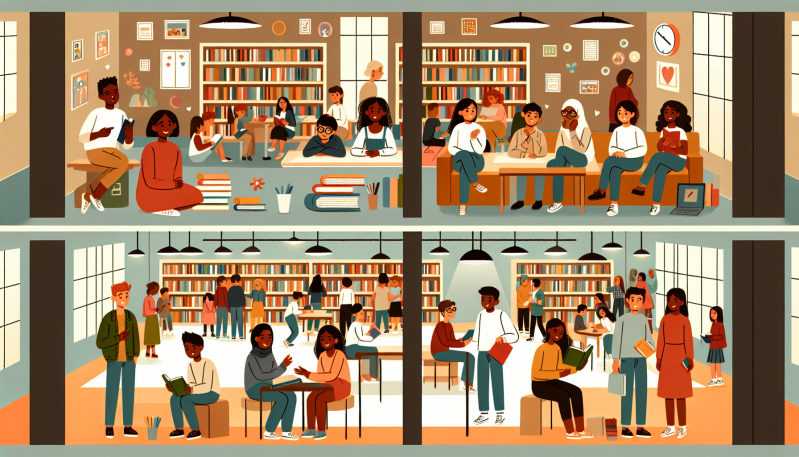In the heart of every child lies the potential for greatness, a potential that is nurtured not only by the knowledge imparted in the classroom but also by the quality of the environment in which they learn. A school’s atmosphere, influenced by the values of Diversity, Equity, and Inclusion (DEI), plays a crucial role in shaping the young minds that will build the future. This is where the mission of Friendship Week, akin to UNICEF but with a focus on the mental health and social well-being of young learners, resonates powerfully. As we embark on a journey to create a more inclusive world within school walls, we understand that the ripple effect of such an initiative is profound and far-reaching.
The importance of fostering an inclusive learning environment cannot be overstated. It is in the rich soil of diversity that the seeds of understanding, compassion, and friendship are sown. By celebrating diversity in all its forms, we not only acknowledge the uniqueness of each individual but also arm our students with the keen insight that differences are not barriers but bridges to a more colorful and collaborative world.
Promoting DEI within schools is not simply a moral obligation; it enhances the educational experience for students of all backgrounds. It paves the way for a generation of thinkers and leaders who are comfortable navigating the global tapestry of cultures and ideas. Moreover, inclusivity in education leads to better learning outcomes, as students feel represented, understood, and supported in their academic pursuits.
Educators and educational influencers are the architects of this grand design. Their role extends beyond the implementation of policy to embodying the very essence of inclusion in their classrooms. Through their actions, language, and attitudes, teachers set the tone for a school culture that embraces every student. They must rise to the challenge of being both educators and advocates, ensuring that the principles of DEI are interwoven into the fabric of everyday school life, from lesson plans to playground interactions.
Inclusion does not stop at cultural or social diversity. It also encompasses the vital work of addressing mental health and fostering kindness. By integrating these initiatives into the school environment, we actively combat the scourge of loneliness and create a network of support for our students. The recognition and action on mental health begin a transformation where children feel safe to express themselves and seek help without stigma or fear.
Building a supportive community is an investment in the future mental well-being of our youth. As Friendship Week champions, we emphasize the importance of kindness as a currency that never devalues. Simple acts of consideration and understanding can ignite friendships that transcend differences, providing a safety net that catches those who may feel isolated or marginalized.
So, how can schools implement actionable strategies that encourage students to embrace diversity and build lasting friendships? Here are some starting points:
1. Diversity and Inclusion Training: Provide comprehensive training for staff to recognize unconscious bias, understand the importance of representation, and employ inclusive teaching methods.
2. Representation in Curriculum: Ensure that the curriculum reflects the diversity of the student body and the world, allowing students to see themselves and learn from the perspectives of others.
3. Safe Spaces: Create safe spaces where students can share their experiences and feelings, promoting mental health awareness and fostering a community of empathy.
4. Peer Support Programs: Establish mentorship and buddy systems that encourage students to form bonds with peers from different backgrounds.
5. Celebrate Diversity: Organize events and activities that celebrate various cultures, traditions, and identities, reinforcing the message that every student is valued and cherished.
The ripple effect of inclusivity is one that extends beyond the school gates, spilling into communities and society at large. When we champion a culture of learning that embraces all, we lay down the foundation for a world that not only tolerates diversity but thrives on it. The work of Friendship Week, mirrored in the actions of schools committed to inclusivity, is a testament to the transformative power of education that is rooted in kindness, understanding, and an unwavering belief in the potential of every child.



